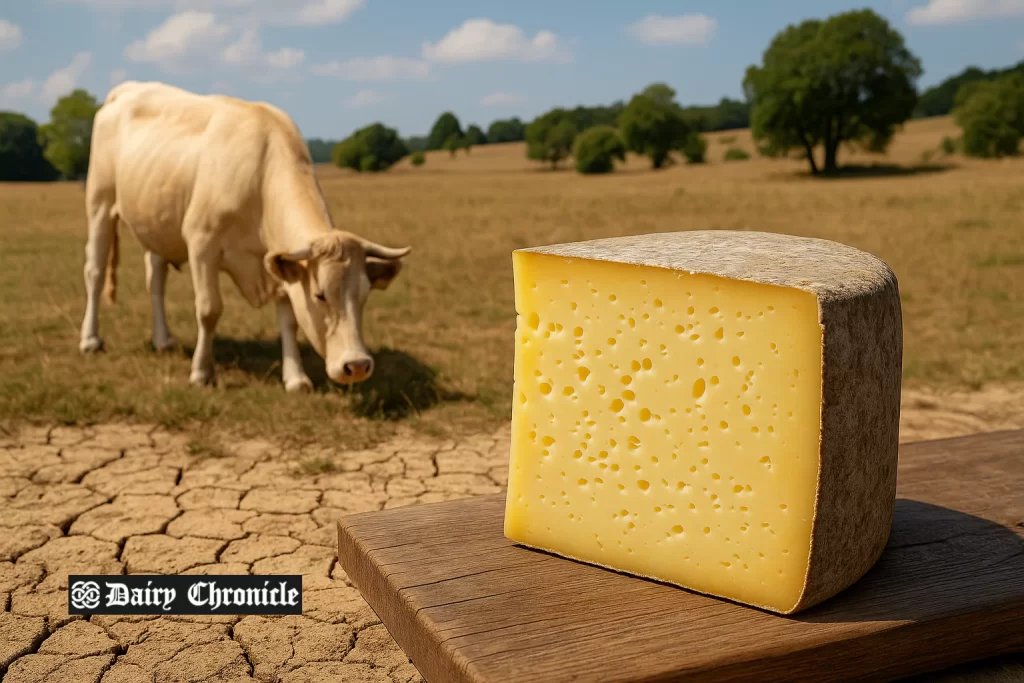A new study by France’s National Research Institute for Agriculture, Food and Environment (INRAE) highlights how climate change is affecting the quality of cheese by altering cows’ diets. Conducted in the Auvergne region of France, the research reveals that shifts from grass-fed to corn-based diets, driven by droughts, may reduce cheese’s flavor and nutritional value, signaling a broader impact of climate change on traditional dairy practices.
The National Research Institute for Agriculture, Food and Environment (INRAE), France’s leading public research body for sustainable agriculture and food systems, has raised fresh concerns over the impact of climate change on cheese — one of France’s most prized culinary traditions.
In a study published on February 20 in the Journal of Dairy Science, researchers from INRAE revealed that the rising frequency of droughts in the Auvergne region of central France is forcing dairy farmers to alter traditional feeding practices for cows. Typically grazed on fresh local grass, cows are now being fed more drought-resistant feedstocks like corn to adapt to reduced rainfall and poor grass yields.
The study focused on Cantal cheese, a firm, unpasteurized cheese protected under France’s Appellation d’Origine Contrôlée system. Researchers monitored 40 cows over five months during 2021, supplementing grass with corn in varying proportions to simulate drought-induced feed changes.
While corn-based diets didn’t reduce milk yield and slightly cut methane emissions, the sensory and nutritional qualities of the resulting cheese suffered. Cheese from grass-fed cows remained richer in taste and color, with higher levels of heart-healthy omega-3 fatty acids and probiotic lactic acid bacteria. These qualities diminished in cheese made from corn-fed cows.
“Farmers are searching for feeds that survive better in dry conditions,” said Matthieu Bouchon, lead researcher at INRAE. “But they also need to understand how these changes affect their cheese.”
Researchers used gas chromatography to analyze milk’s fatty acid and protein composition, which are key to cheese formation and taste. They also cultivated milk samples to evaluate bacterial diversity, finding healthier microbial profiles in grass-fed dairy.
The findings have implications beyond France. In Belo Horizonte, Brazil, dairy producers are already battling extreme heat. Federal University of Lavras dairy scientist Marina Danes noted that cows under heat stress consume less and divert nutrients to immune functions, impacting milk quality.
Gustavo Abijaodi, a local producer, has shifted from open grazing to indoor herding to protect cattle from rising temperatures. “We had issues with milk protein and fat due to heat,” he said. “Stabilizing the heat effects improved quality.”
Marcus Vinícius Couto, technical coordinator at the Central Cooperative of Rural Producers, added that controlling starch levels in feed is essential, as excess starch can disrupt the cow’s digestion and milk profile.
Though French producers may require region-specific strategies, the study’s conclusion was clear. “If climate change progresses the way it’s going, we’ll feel it in our cheese,” Bouchon warned.



